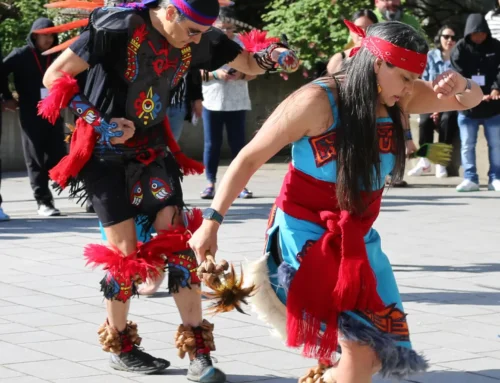Roaming the Region: Learning about English Learning (EL) Services
I recently learned that school districts in the NWESD Region serve a growing number of English Language students (5%-25%), who are learning English as a second or even third language! To address this growing percentage of students, school districts from across our region have formed the NWESD ELL Cooperative. The purpose of this cooperative is to develop the capacity for ELL Specialists to deliver training within their own districts. EL Specialists are invited to attend training that they will then be able to deliver in their own district. Another piece of this work is a Professional Learning Community (PLC) for district leaders to support their development of effective ELL programs within their districts. The professional learning for the cooperative is being facilitated by two regional educators, Sarah Southard and Anne Jones from Burlington-Edison School District.
The PLCs meet in a series of workshops that focus on shaping student attitudes, learning about teaching skills and sharing learning strategies that will better serve our students’ language needs.
Educator teams have explored and learned about:
- understanding language development and acquisition;
- language privilege and our possible biases; and
- instructional strategies for student engagement (this was great fun and informational).
The final workshop for this year will focus on scaffolds for language learners. Teams will explore various language scaffolds that support students’ participation in reading, writing, listening and speaking. Close attention will be paid to when and how to use scaffolds and when it’s appropriate to begin removing them as students develop independence.
I had an opportunity to visit with some of the EL Specialists who have been participating in the cooperative professional learning offerings. Specifically, I asked them what was working well for them with this professional learning model? Many have found the instructional delivery model to be very engaging and appreciate the real-life examples of what strategies look like in practice (learning by doing). Some also added that these days of learning have allowed them the opportunity to network with their peers from other districts and learn from their practice.
As I visit classrooms, I see teachers modeling the strategies shared at the professional learning sessions. The strategies are keeping the students actively engaged. Here are some of the comments I have overheard about these workshops and opportunities for adults to learn:
“This is great. Well worth the time!”
“Very engaging, friendly and knowledgeable presenters!”
“Today was a taste. I need more”
Later this month, participating districts will have an opportunity to design how these services will continue next year. I am excited to hear how new districts and educators can join this amazing learning opportunity.
It is important that we all recognize that everyone is, in fact, an English Learner and that the strategies we learn as educators and find successful in meeting the needs of EL learners are the same strategies that can meet the needs of all of our students. As we celebrate the diversity of our region, it is heartening to see our schools taking pride in ensuring that our English Learning (EL) students feel welcomed, safe and have access to the curriculum and standards, and help to engage their families in our communities and schools.
For more information on this topic please contact Gayle Everly geverly@nwesd.org (360) 299-4082
-Ed



